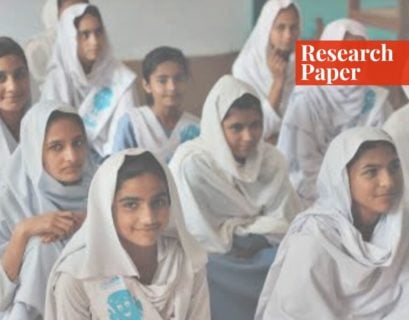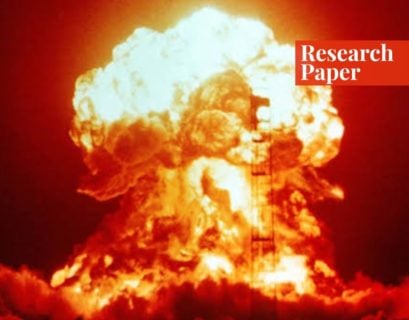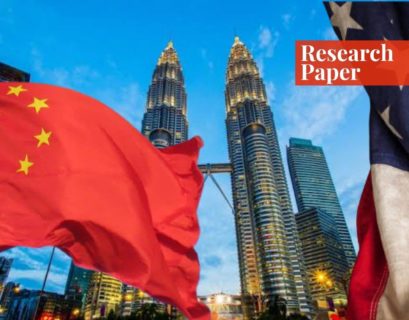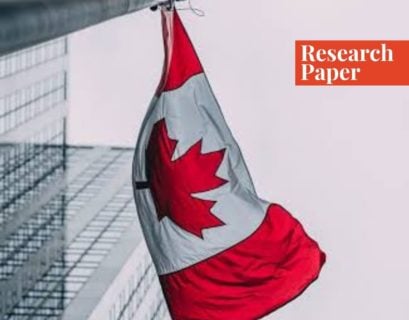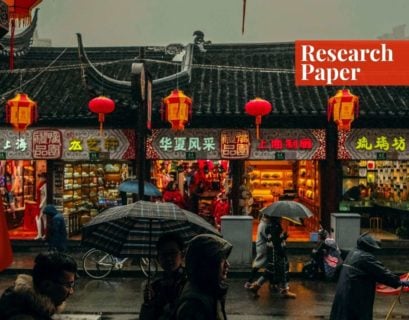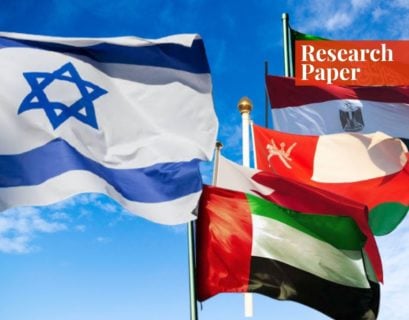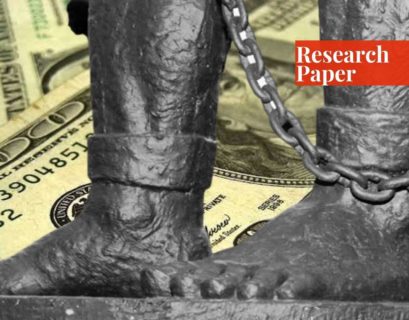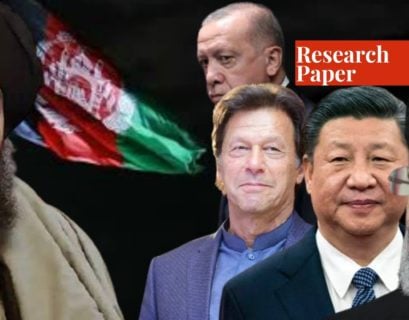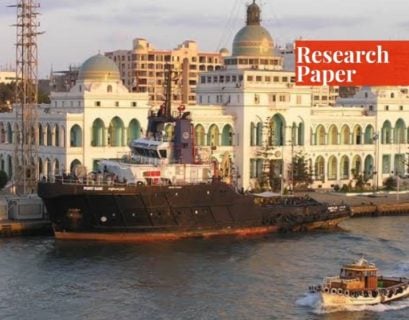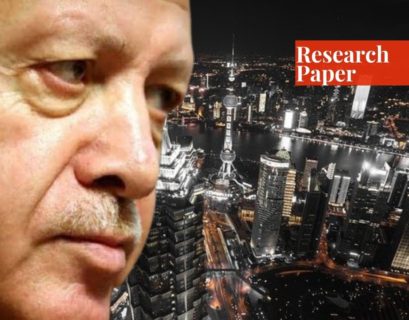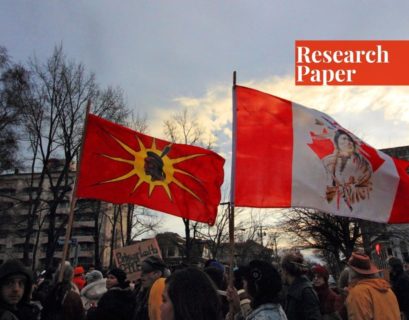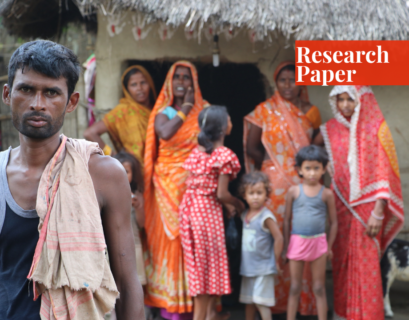Fossil Fuel Burning & Corporations: The Case of Berkshire Hathaway & Saudi Aramco
When it comes to climate change, the contribution of giant corporations to global warming is often overlooked. Maryam Ibrahim notes that one of the main causes of global warming is the emission of CO2 from the burning of fossil fuels, and this is where energy corporations come in. The author takes the example of Berkshire Hathaway and Saudi Aramco to shed light on climate denial, and the lack of accountability associated with these corporations’ environmental activities.
Pegasus Spyware: A Case of National Security & Modern Warfare
Hamna Binte Waqar examines the change in the cyber security realm with the advent of the NSO Group’s Pegasus spyware. After targeting several countries, governments, and individuals, the software has created an uproar in international politics and media. It is now seen as a threat to the national security of states and as an unconventional weapon capable of extracting private information and generating propaganda. While Pegasus has faced continuous backlash, the need to adapt to the transition in the modes of warfare has slowly made it a sought-after weapon in the contemporary security market.
Period Poverty and Its Impact on Women
Meerab Malik discusses the struggle many low-income women and girls face while trying to afford menstrual products. She uses data from primary and secondary sources to try and understand the consequences of this ‘period poverty’ in their daily lives.
The Impact of Anti-Nuclear Global South Movements on the Control of Nuclear Weapons
Before being banned, nuclear testing in the Global South had been a major issue for leaders and citizens in those countries. The West found the Global South’s soil to be fair game for nuclear testing while preserving the sanctity of their own lands. In this essay, Dina Tawfik proposes and answers the following research question: to what extent have the Global South’s antinuclear movements had an impact on curbing the usage of nuclear weapons as well as nuclear testing, and on developing a non-proliferation global norm, and nuclear disarmament?
China’s BRI vs the US’s FOIP: Foreign Policy Opportunities and Challenges for Malaysia
Contemporary publications identify Indo-Pacific as a hub of great power politics. The great powers, China and the US, are striving their best to enhance their sphere of influence across the region through BRI and FOIP respectively. These two strategies bring some opportunities along with certain challenges for ASEAN member states. In this research paper, the structural realism lens is used to analyze the foreign policy situation of Malaysia under these circumstances.
Explaining the Party System in Canada
Since the 1900s, the Canadian party system has evolved from a two-party system to a multiparty. Hurain Sheikh analyzes Canada’s party system in the light of Duverger’s law and Johnston’s study of the system. She argues that the present-day party system in Canada is not based upon polarization but rather on moderate pluralism. Since most Canadians have moderate views on social, economical, and political policies, even the parties with extreme ideological beliefs had to gradually adopt a more moderate stance to appeal to the masses.
Unleashing the Potential of the SME Sector in Pakistan
Using a general thematic approach, this paper examines the positive and negative externalities of the COVID-19 pandemic on Pakistan’s economy. The author, Umme Ammara, explores the different cases of Small and Medium Enterprises (SMEs) from China, India, Bangladesh and Kazakhstan to understand the different measures the Pakistani government can initiate to strengthen SMEs. The findings suggest that unleashing the potential of the SME sector requires the need for institutional change in a country intending to build a human economy where human development is the main area of concern.
The Conflict in Syria & Its Brutal Effects on the People
What started off as protests against the authoritarian regime of Bashar al-Assad in 2011, has turned into a decade-long war involving international and domestic actors. The author, Amna Shaukat, applies the conflict tree model to explain the deep-rooted causes of the conflict and the effects of this war on the people of the state. Since the war first broke out, almost 400,000 Syrians have lost their lives while millions have been displaced—internally and externally. It has left Syria devastated in every way. The economy itself will take years to recover, but that too, requires the war to end.
The Demographic Transition Model in China
Transition in the economic growth of countries takes place when they shift from a high, uncontrolled population to a low and balanced population. The same is the case of China which shifted from low prosperity, high child mortality, and high fertility to a state of high prosperity, low child mortality and low fertility. The author, Arfah Zia, dwells on the impact of the demographic transition on China. She draws attention to how this transition has proven successful for economic growth and, at the same time, discusses how it has become distressing for China’s population size.
Iran: A Common Enemy of Israel and the Arab Countries
The relations of the Arab states, namely Saudi Arabia, the UAE, Bahrain, Egypt, and Oman, with Israel have always been based upon what they perceive as a threat and what benefits them. The authors, Rubab Nawaz and Kanza Tahir, explain that initially, these Arab states viewed Israel as the enemy but now, they’ve started to align themselves with it to counter the threat of a Shi’ite and nuclear Iran. This threat has been securitized to gain legitimacy from the masses. For the sake of this Arab-Israel alliance, the Gulf states seem to have sidelined the issue of Palestine.
Is There a Link Between Slavery and Capitalism?
The paper critically examines the essence of capitalism and how it functions in the many social systems across the world. It also looks into the relationship between capitalism and slavery, and whether or not capitalism has any characteristics that are similar to slavery.
All Eyes on the Republics of Central Asia’s Resources
The onset of the geopolitics of energy and resources in the international political system has redefined the regions’ importance in terms of the reservoirs of resources. Central Asia, in this respect, stands out with its abundant, unexplored, and top-notch natural resources. The paper highlights the factors behind the arousing interests of Pakistan, China, and the United States in the Central Asian republics. The future of Central Asia’s political, economic, and geostrategic landscape shall be determined by the member countries’ course of policies and actions towards Pakistan, China, and the United States.
A Peaceful Afghanistan: The Interest of Pakistan, China, & the Region
Over the years, the state of Afghanistan has experienced terrorism, drug trafficking, human rights abuse, political turmoil, geostrategic and geo-economic tussle, and societal deterioration. The instability in the state has impacted Pakistan, China, Iran, Turkey, and the Central Asian Republics as well. The authors, Muhammad Saad, Eman Anjum, Jizza Babar, and M. Shaheer Khattak, note that for their own interests, these regional states seek a peaceful Afghanistan, the establishment of which is not an easy task. For this reason, they have made efforts to stabilize and develop the war-torn state.
Alternatives to Egypt’s Suez Canal: Russia’s Northern Sea Route & Israel’s Ben-Gurion Canal
In March 2021, a container ship called “Ever Given” blocked Egypt’s Suez Canal for six days. On one hand, the blockage of the canal cost the world around $10 billion in trade each day, while on the other hand, it provided Russia and Israel with the perfect opportunity to garner support for their respective sea route projects. The authors, Alyan Waheed and Muskan Moazzam, note that Russia’s Northern Sea Route (NSR) and Israel’s Ben-Gurion Canal can act as alternatives to the Suez Canal and reduce the international community’s dependency on it. As such, to prevent states from opting for these routes, Egypt will have to make several changes – one of them is lowering the trade barriers.
Implementing the Chinese Economic Model in Turkey
President Erdogan is seeking to incorporate the Chinese economic model in Turkey. As such, Turkey will abandon high-interest rates and turn to production and exports. Opposing parties have cited this proposal to be unquestionably authoritarian. The author, Necati Demircan, explores Turkey’s abandonment of the neoliberal economic model and the new slogan of production in the country’s orientation towards Asia.
The Idle No More Movement in Canada: A Case Study of Contentious Politics
Contentious politics is the use of confrontational and unconventional tactics against political authorities to make a social or political point. Such advocacy has transformed the national political landscape in Canada since the announcement of the White Paper policy. The author, Hurain Sheikh, addresses the definition of contentious politics, the use of social movements and protests in Canada and its contributions to indigenous peoples, especially during the “Idle No More” movement.
The Rise of Global Politics of Poverty Reduction
The main aim of this study is to look at the current global status of poverty and existing practices to alleviate it. Global actors have launched many strategies in the past three decades to help nations in reducing poverty. The author, Zaryab Fatima, highlights a continuous rise of global politics of poverty alleviation. The results of her study clearly show that poverty reduction strategies and approaches are probably going to be entwined with standard monetary arrangements based on principles of equity rather than equality.


